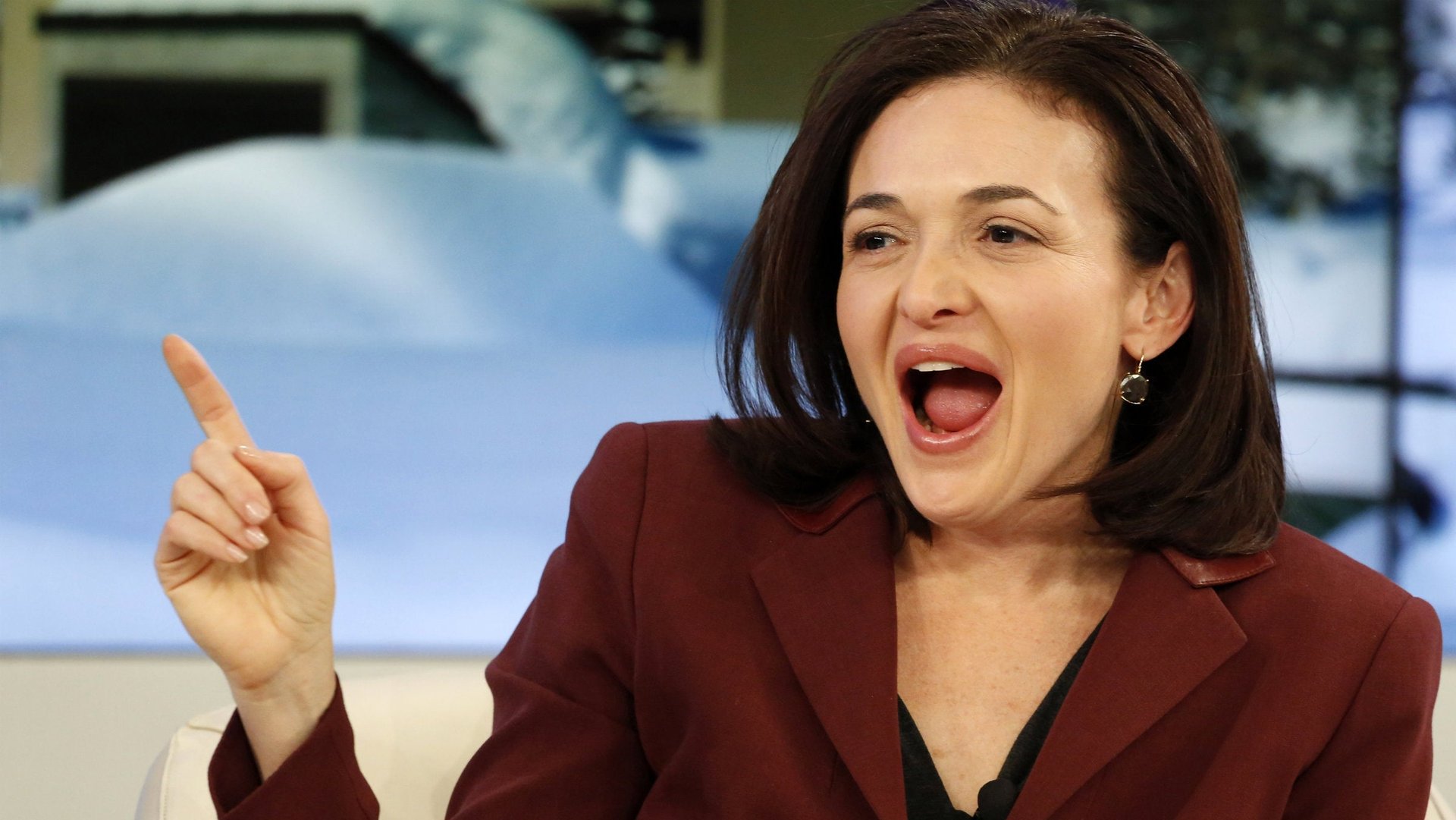Mark Zuckerberg and Sheryl Sandberg took huge pay cuts in 2013, despite Facebook’s stunning year
2013 was a breakthrough year for Facebook. It decisively shook off its post-IPO blues, and its share price more than doubled after it solved its mobile problems faster than many anticipated. And yet all of its senior executives took enormous pay cuts.


2013 was a breakthrough year for Facebook. It decisively shook off its post-IPO blues, and its share price more than doubled after it solved its mobile problems faster than many anticipated. And yet all of its senior executives took enormous pay cuts.
According to a filing released overnight, Mark Zuckerberg’s total compensation worked out to $653,165 last year, down almost 70% from 2012. That included a salary of just $1: the bulk of his compensation covered costs of personal security and private flights. Meanwhile, his top lieutenant, COO Sheryl Sandberg ,was paid $16.2 million in cash and stock, a $10 million pay cut from 2012, and CFO David Ebersman was paid $10.5 million, $7 million less than the year before.
But before you get misty-eyed for the valiant Facebook helsmpeople, it’s worth noting that the decline is basically explained by the large amounts of stock employees got in 2012 as part of the IPO. And these senior executives continue to hold enormous amounts of equity in the business, much of which is tied up in stock options and restricted stock units that in many cases are yet to vest.
For example, Zuckerberg’s controlling stake in Facebook (mainly class B shares that exercise 10 times as many votes as each class A, ordinary share) is worth $25.6 billion, according to FactSet. Sandberg, meanwhile, has divested more than half of her stake in the company since the IPO, according to the Financial Times (paywall). While that might reignite speculation about her ambitions outside of Facebook, or even in the political sphere, she remains one of the company’s biggest shareholders, with her 0.5% stake worth about $658 million, according to FactSet.
So while it might seem like Facebook is happy to spend billions on businesses with unproven business models, but not on its own executives, the reality is a little more complicated.